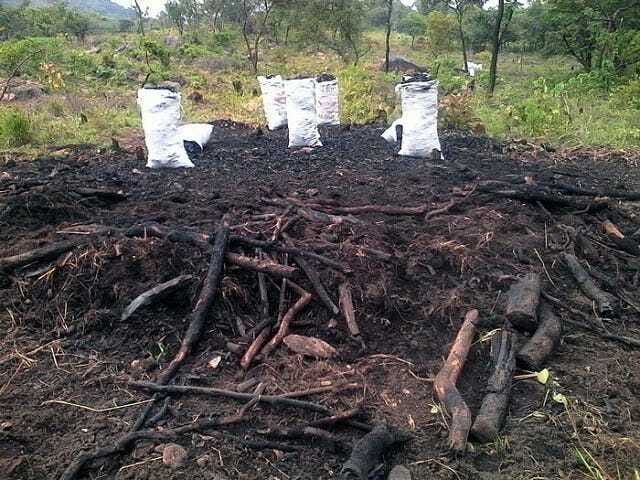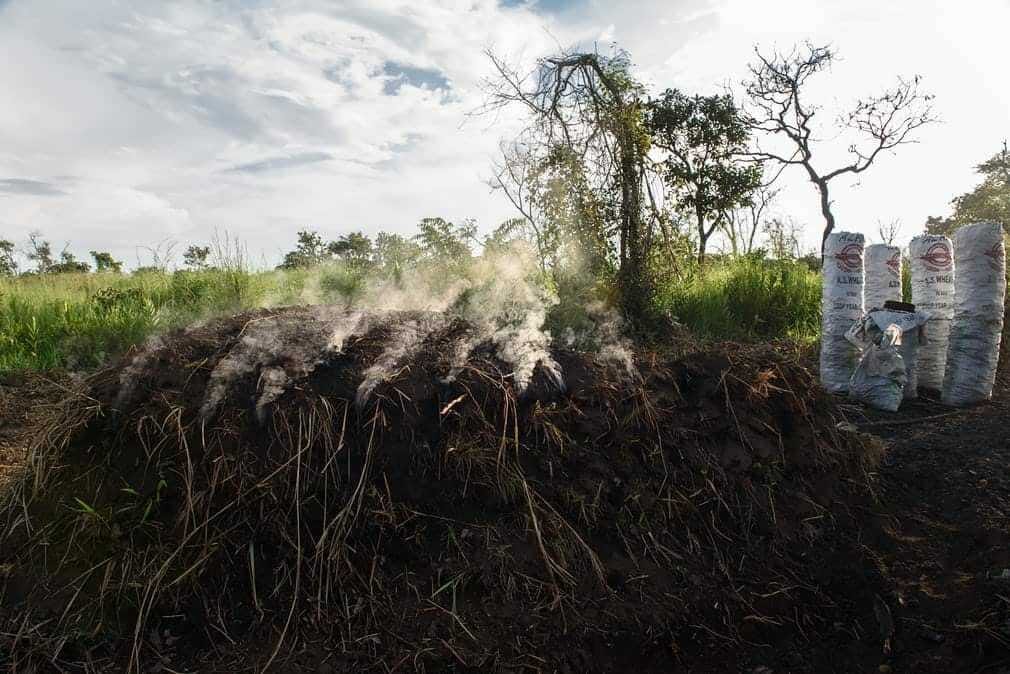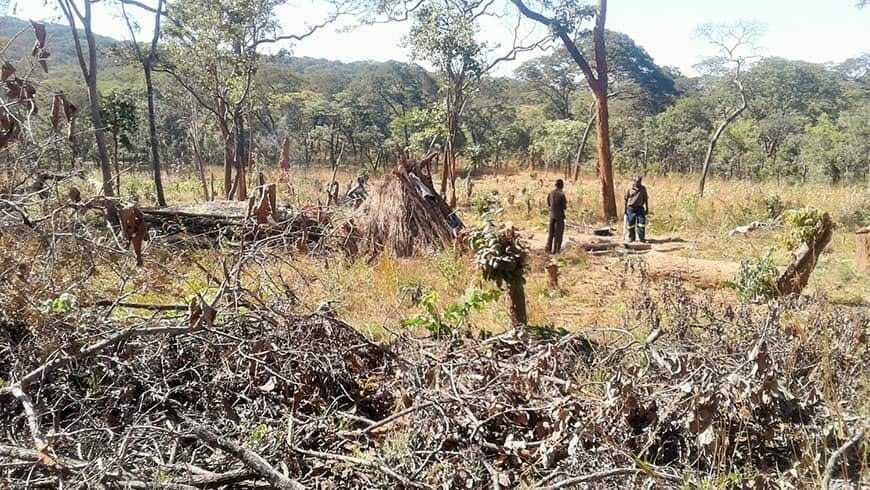
Malawi: Forest degradation is one major development challenge facing Malawi. Degradation has a range of negative consequences. It results in soil erosion, leading to a loss of fertility and making it more difficult for farmers to grow crops, leading to declining food security, writes Tionge Hara.
Forest degradation also contributes to biodiversity loss (through habitat loss) and negatively impacts communities that rely on forests for firewood, timber, and non-timber forest products for their livelihoods.
In addition to forest degradation, Malawi is also facing the double burden of climate-related challenges, such as increased frequency and severity of climate-related events (e.g., droughts and floods), which are having a significant impact on agriculture productivity, which, in turn, is negatively impacting livelihoods and food security.
Climate change is also expected to worsen the severity of extreme weather events such as floods and cyclones, which can have serious consequences for infrastructure and human lives.

Mary Shaba, a 50-year-old woman from Mzimba, said that the state of Malawi's forests and the negative consequences that forest degradation brings with it has had a negative impact on her life and livelihood and that the current state of things is not acceptable.
She, like the majority of rural women in Mzimba, must walk long distances to obtain firewood because most forests have been cleared.
"Our livelihood is heavily dependent on forests and their products; we have to walk long distances to get firewood because it is the only source used for cooking in our homes," Shaba explained.
She acknowledged the role that citizens can play in ecosystem restoration but believes that the government should take the lead in combating the country's ever-increasing rate of deforestation.
"While the government is doing everything it can to address the situation, there is still a knowledge gap on the negative effects of degradation, which has exacerbated the situation in terms of access to fuelwood for household cooking, particularly in rural areas," Shaba said in an interview.
A walk through rural Mzimba revealed that many of the residents don’t value the fundamental reasons why they should conserve trees on their homestead.
Despite the fact that the negative effects of large-scale degradation were on full display last year when the country was hit hard by climate-change-induced disasters such as floods caused by cyclones Ana and Gombe, as well as prolonged dry spells, degradation continues unabated.
"Government needs to do a lot in the management of our forest reserves; deploying police and army officers can help us because some local citizens can no longer be trusted," said Clement Phiri, a resident of Mzimba district who is concerned about the current situation.
Several issues, such as bad laws and system failures have contributed to the current state of forest resource degradation. In some forests, such as Perekezi, there are inadequate rangers, encroachment by local citizens who have turned the forest into a grazing haven, tree cutting for charcoal burning and plank sawing.
The Department of Forestry (DOF) lacks the resources and personnel to effectively address the challenge. Its high vacancy rate of more than 50% and inadequate funding have hindered its ability to perform its duties.
In a related development, a review of the DOF's budget for the past five years reveals it is drastically underfunded, and this funding deficit has had a significant impact on its work over this period of time.
For example, over the period of 2016 to 2022, the department received K342 million for its tree-planting programme and planted 304,091,116 trees.
The Mzimba District Forestry Office has a budget that changes from year to year. In the financial year 2018-2019, the annual approved budget was K6,763,894 and the monthly average funding was K563,657.83. The following year, the annual approved budget increased to K7,102,089, and the monthly average funding rose to K591,840.75.
However, in the financial year of 2020-2021, there was a significant increase in the annual approved budget, which rose to K13,225,822, and the monthly average funding also increased to K1,102,151.83.
The budget for the financial year 2021-2022 saw a decrease, with an annual approved budget of K10,906,354 and a monthly average funding of K1,211,817.11. And for the 2022-2023 Financial Year, the Annual Approved budget is set to K14,538,169, and the monthly average funding is K1,211,514,08.
When asked if the Mzimba District Forestry Office feels that their annual approved budgets were sufficient for their activities and operations, Mzimba District Forestry Officer Lifred Banda stated that the budgets have always been insufficient due to the large workload and the fact that Mzimba is the largest district in Malawi with many forestry resources that require proper management.
Banda cited the example of the nine Forest Reserves in the district, explaining that managing a forest reserve requires a significant amount of funding and the monthly funding does not suffice to support both customary forests and forest reserves.
"Normally, activities for the year are planned and budgeted in advance following the annual provisions (budgets) that we are given. Despite that some activities may require a lot of money, we only prioritize those elements that may be feasibly done with the allocated money. The main challenge has always been the partial achievement of the targets for some activities. Inadequate supervision of some activities across the district and continued forest loss due to limited funds for law enforcement,” said Banda
The Mzimba District Forestry Officer stated that the funding allocation is done centrally and the district has no say in it.
He mentioned that, despite the yearly increase in funding allocation, the magnitude of the increase is mostly insignificant and does not bring any meaningful changes. He also highlighted that almost every year, they experience some challenges of irregular funding, which makes it difficult to implement the planned activities due to lack of funding in some months and overfunding in others.
Frank Nkondetseni, the spokesperson for the Ministry of Natural Resources and Climate Change, provides more insight on forestry-related developments.
"Most Malawians rely on firewood and charcoal for cooking, with 96% of households using these forms of biomass fuel, with more than 75% of urban households relying on charcoal, the production of which uses the entire tree, unlike household firewood collection which typically harvests only branches, leaving the tree intact," Nkondetseni said.
He explained that the country's reliance on woodfuels, and specifically on charcoal has placed a heavy burden on the country's forest resources.
"The resulting deforestation and degradation have led to frequent floods, droughts, and siltation in rivers, which has reduced hydropower generation and increased costs of production, and has lowered agricultural productivity, negatively affecting people's lives in the country," he added.
Forest and landscape degradation is a result of the indiscriminate cutting of trees for charcoal production, industrial firewood collection, farming, human settlement, and dangerous bushfires. Estimates show that the country loses 1,000 to 2,000 hectares of trees each year due to bushfires.
"In recent years Malawi has developed various policies and strategies to address environmental challenges such as deforestation, including the National Forestry Policy (2016), National Forest Landscape Restoration Strategy (2017), and National Charcoal Strategy (2017-27)," said Nkondetseni.
To safeguard Malawi's forests, the Forestry Act (1997) and the Forestry (Amendment) Act 2020 are in effect, he said.
According to Nkondetseni, these laws stipulate that the production, distribution, sale, possession, import, and export of charcoal are prohibited without a charcoal license, which is only issued by the Department of Forestry (DoF).
Malawi has committed to restoring 4.5 million hectares by 2030 under the National Landscape Restoration Plan which is under Bonn Challenge Initiative, after losing 7.8 million hectares of trees since the 1980s, according to government figures.
"In this regard, the ministry appreciates both financial and material support we receive from various development partners and private sectors in the restoration of forest landscapes," Nkondetseni said.
Greshan Kamnyamata Adjunct Lecturer at Mzuzu University and an environment commentator stated that "the rate of forest degradation in Malawi is very high, currently at 33,000 ha per year".
Kamnyamata added that "this is very high and has repercussions which may worsen climatic shocks if not controlled effectively by all concerned partners. This high rate is being exacerbated by the high population coupled with high poverty rates among Malawians."
In terms of the effects of forest degradation, Kamnyamata noted that "forests play a critical role in mitigating global warming on the earth. As a result, if depletion continues at this rate in Malawi and around the world, we can expect significant temperature rises in the near future because the primary carbon sink will be removed. Forests maintain the earth's rainfall patterns through transpiration, so rainfall problems should be anticipated. Forests replenish soil nutrients through microbial decomposition, restoring soil fertility. If forests are cut down, soil erosion is to be expected because forests bind soil particles together through their roots, making them resistant to water run-off or wind forces. However, in the absence of forests, siltation in rivers, dams, and lakes may occur, causing the water bodies to become unsuitable for aquatic life."
Kamnyamata also mentioned that tree planting programmes have been implemented in Malawi, though "only a small percentage of such programmes have produced any results. The main reason for poor results is that most programmes are good at planting trees of trees only. As a result, the survival rate of such planted trees is extremely low. Others begin planting trees near the end of the rainy season. This has an impact on the establishment process of newly planted trees because they face difficulties during the dry season before becoming fully established.”

Maloto Chimkombero, another environmentalist, agrees that Malawi's forests are being depleted at an alarming rate.
It is estimated that deforestation, the main contributing factor, is responsible for the loss of approximately 33,000 hectares per year.
According to Chimkombero, one of the key factors contributing to the loss of trees in Malawi is the excessive use of biomass energy.
"Increased greenhouse gases in the atmosphere cause global warming, resulting in extremely hot conditions, soil erosion, less agricultural produce, and flooding, which causes loss of property, life, and displacement of people. You will agree with me that Malawi is already experiencing such situations," Chimkombero stated.
Chimkombero also noted that while Malawians have been planting trees for a long time, they are no longer visible due to a lack of collaboration between institutions and communities, as well as a lack of ownership and responsibility for the trees.
"We must change the way we conduct such programmes. Tree planting projects are not something that can be completed in a single day, and those involved in such projects should not skip a step," Chimkombero emphasized.
He added that "shortcuts in tree planting projects must be avoided. People and institutions, for example, have a tendency to believe that a tree-planting project is a one-day event. It is not the case. There are things that must be done before, during, and after the tree-planting activity. We should concentrate on educating communities about which varieties they can plant and how to plant and care for them. If people are encouraged to plant industrial, medicinal, and fruit trees, they will feel obligated to care for them because they will reap financial and health benefits from them."
Although M'mbelwa District Council has a forest co-management plan, there are no specific by-laws for Perekezi Forest Reserve. Only general bylaws, created by the Mbelwa District Council, with fines capped at MW2, 000, are in place.
Stanley Chindiku Mkandawire, Senior GVH in Mzimba's Mulumuzana Daniel Gausi, Mzikubola North area said: “The fines for destroying the forest are given to third-party sellers, not the producers of charcoal. Has anyone been arrested or fined for this destruction? The co-management plan's regulations support government initiatives, but it is ultimately up to the office of the DFO to take action and put an end to this illegal practice. The responsibility lies with the DFO to stop those who are destroying the forest.”
The surrounding villages formed committees to help with this effort.
However, these committees were unable to effectively carry out their work due to a lack of funding and government support.
As a result, there is a high rate of degradation in the areas of Chinjoka Chirwa village along the M1 to Lilongwe at location 5, and in the areas of Kamtchayeni Nkhata, Samson Shumba at Chiling'oma Forest within Perekezi.
These areas are known for high levels of charcoal production, and there are now vast stretches of barren land where all of the trees have been cleared.
The rapid rate of deforestation has also led to the silting and drying up of rivers that were once perennial sources of water for the rural population.
When asked why the government has been unable to prevent the reckless felling of trees in these areas, Senior GVH Mkandawire responded that "there is a need for a proper working relationship between the chiefs, game rangers, and guards.”
Senior GVH Mkandawire also suggested that the government should station police and army officers in forests as a means of protecting the remaining trees. He emphasized the need for people in Malawi to change their mindset and adopt alternative approaches, such as switching from firewood to gas, alternate timber to steel, and burnt bricks to cement blocks, in order to mitigate the negative impact of climate change caused by degradation in the country.
One of the goals of MW2063, a long-term development plan for Malawi, is to ensure that the country has a clean, secure, and sustainable environment (enabler number 7). This requires the implementation of sustainable development programs that minimize the depletion of natural resources and avoid further harm to the environment.

Despite this, some Malawians continue to contribute to environmental degradation.
In response to the problem of deforestation, the Forestry Act Amendment 2019 has revised the penalties for a range of offences.
According to the revised law, anyone who fells or destroys any tree or other vegetation could face up to a ten-year prison sentence and a fine of MK5 million (Malawian kwacha). Additionally, anyone who conspires with or causes another person to fell or destroy any tree or other vegetation could face up to a 15-year prison sentence and a fine of MK10 million.
The maximum penalty for forest crimes is now up to 20 years in prison, which is intended to deter potential offenders and help restore the country's lost forests.
Forest degradation is a major development challenge facing Malawi, with negative consequences for soil erosion, food security, biodiversity loss, and the livelihoods of communities that rely on forests for firewood, timber, and other non-timber forest products.
The country is also facing the double burden of climate-related challenges such as increased frequency and severity of droughts and floods, which are negatively impacting agricultural productivity and livelihoods.
The government needs to take the lead in combating the country's ever-increasing rate of deforestation and forest degradation, with the help of police and army officers, as well as more stringent forestry regulations, better funding, and improved personnel for the Department of Forestry.
The recently revised law, which includes new penalties, may help improve the situation, but more action is needed to address the underlying issues that are contributing to the destruction of Malawi's forests.
This story was produced with the support of the Forest Accountability Journalism Initiative in Malawi (FAJIM).